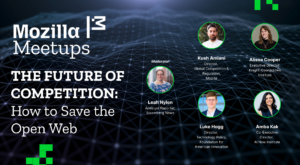The choices governments make today, about who gets to build, access and benefit from AI, will shape economic competitiveness, national security and digital rights for decades.
A new report by UK think tank, Demos, supported by Mozilla, makes the case that if the UK wants to thrive in the AI era it must embrace openness. And while the report is tailored to the UK context, its implications reach far beyond Westminster.
Unlike the US or China, the UK and many other countries cannot outspend or outscale on AI, but they can out-collaborate. Demos’ report The Open Dividend: Building an AI openness strategy to unlock the UK’s AI potential, argues that making key AI resources – models, datasets, compute and safety tools, more openly accessible can spur innovation, lower the costs of AI adoption, enable safer and more transparent development, boost digital sovereignty and align AI more closely with public value. A recipe, if there ever was one, for ‘winning’ at AI.
The wider market certainly reflects these trends – the AI sector is shifting toward value accruing in smaller, specialised and more efficient models. Developments all spurred on by open source innovation. But this also means open models aren’t just more accessible and customisable, they’re becoming more capable too.
This echoes another recent study Mozilla supported, this time a survey of more than 700 businesses conducted by McKinsey. Among its top findings – 50% of respondents are already leveraging an open source solution across their stack. More than three-quarters reported that they intended to grow this usage. Most significantly, the first movers – organisations that see AI as vital to their future competitive advantage – are more than 40% more likely to use open source models and tools than respondents from other organisations. Similar research just published by the Linux Foundation has also found openness is fast becoming a competitive edge. Demos’s report expands upon these stats – strategically utilising openness in AI is not just about sharing code, it’s about shaping a more resilient and prosperous ecosystem.
The risks of centralisation are well known and global. We have seen it before with the development of the internet. If we let AI ecosystems become concentrated, so that all power remains in the hands of a few firms and their proprietary models, this will make it much harder to ensure AI serves people – rather than the other way around. It also raises more urgent concerns about market dominance, bias, surveillance, and national resilience.
If we want AI to serve humanity, we all have a stake in getting this right.
As the Demos report argues, openness isn’t just a value – it’s a strategy. We were proud to support the development of this timely report – read it here.










